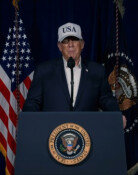Biosimilar companies export over 1 trillion won worth of goods
Biosimilar companies export over 1 trillion won worth of goods
Posted August. 21, 2017 08:21,
Updated August. 21, 2017 08:40
While traditional pharmaceuticals are contracting due to continuous repercussions, new biosimilar companies are expediting their inroads to overseas.
According to the export results recently announced by the Ministry of Food and Drug Safety, exports of biosimilars jumped by 31.5 percent from 892 million dollars (or 923.7 billon won) in 2015 to 1.63 billion dollars (or 1.23 trillion won) in last year, which saw Biosimilars' export excel the 1 trillion Korean won levels for the first time. Their Compound Annual Growth Rate for the last five years showed a clear uprising trend at 29.8 percent. Now, biosimilars take up one third of the total medicine and medical exports.
As a biomedicine, biosimilars are difficult to reproduce and show higher entrance barriers compared to existing synthetic drugs. Large-scale investment is inevitable, as the industry requires potent substances such as cells, organs, or hormones from existing living organisms. However, biomedicines take up seven among the 10 new global blockbuster drugs for the past 10 years. Indeed, biosimilars are leading the global biomedicine market. This is exactly why the biosimilar market is showing skyrocketing growth.
The Korean biosimilar market is currently led by Celltrion and two Samsung affiliates including Samsung Biologics and Samsung Bioepis, followed by the recent newcomer LG Chemical. At the current time, the best cash cow for exports is the biosimilar “Remsima” produced by Celltrion. Remsima was licensed by the European Medicines Agency in 2013, and also from the U.S. Food and Drug Administration in April last year. The first antibody biosimilar to receive approval by the FDA, Remsima is currently sold at 80 nations worldwide.
Hyoun-Soo Kim kimhs@donga.com




![[단독]폴란드, 韓 해군 최초 잠수함 ‘장보고함’ 무상 양도 안받기로](https://dimg.donga.com/c/138/175/90/1/wps/NEWS/IMAGE/2026/02/27/133437397.1.jpg)

![‘부화방탕 대명사’ 북한 2인자 최룡해의 퇴장 [주성하의 ‘北토크’]](https://dimg.donga.com/c/138/175/90/1/wps/NEWS/IMAGE/2026/02/27/133414028.1.jpg)
